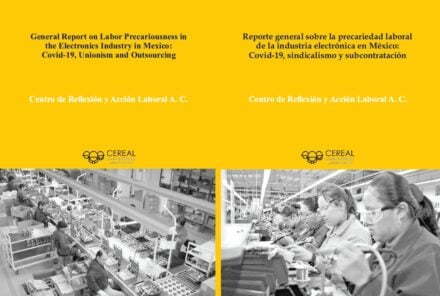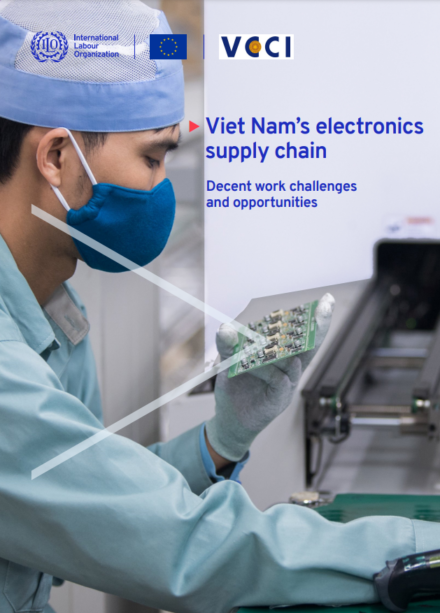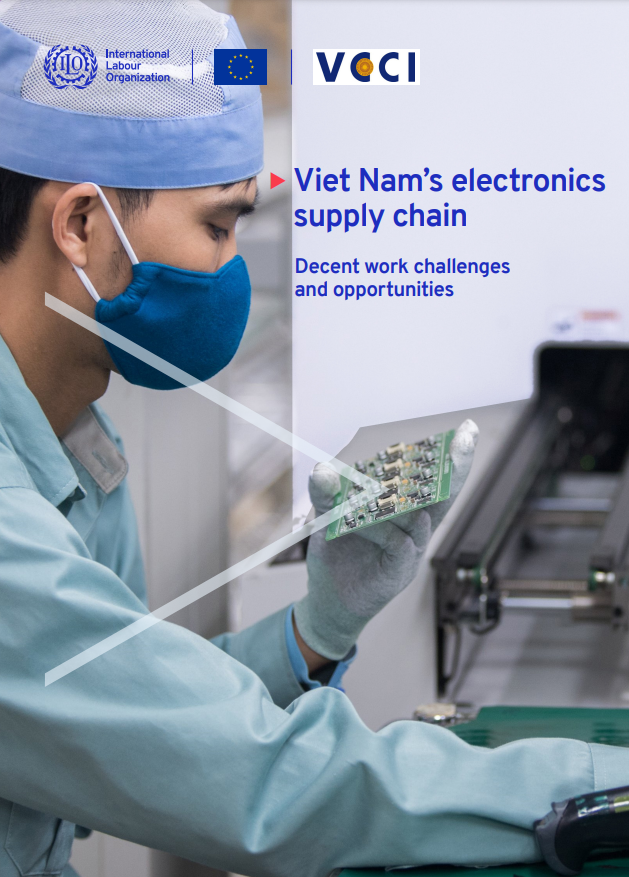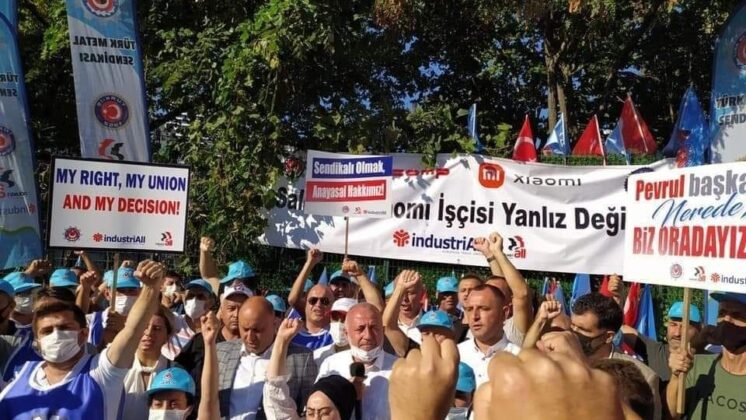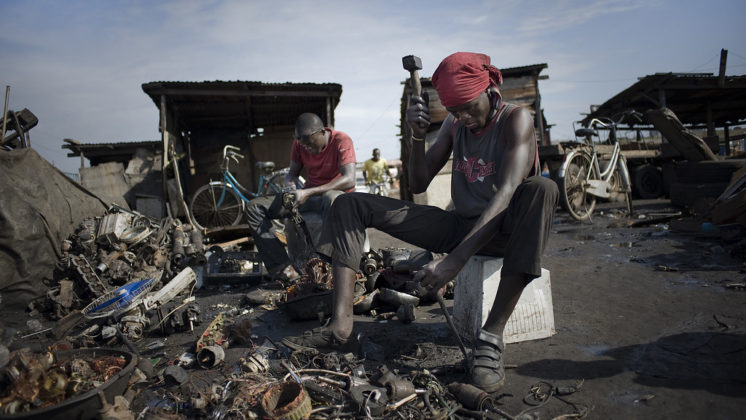Supported by GoodElectronics, CEREAL wrote a report updating on the situation of precarious work in the Mexican electronics industry, which also covers the impact of Covid-19 and the increase of outsourcing. The report also includes a focus on gender-based violence and harassment.
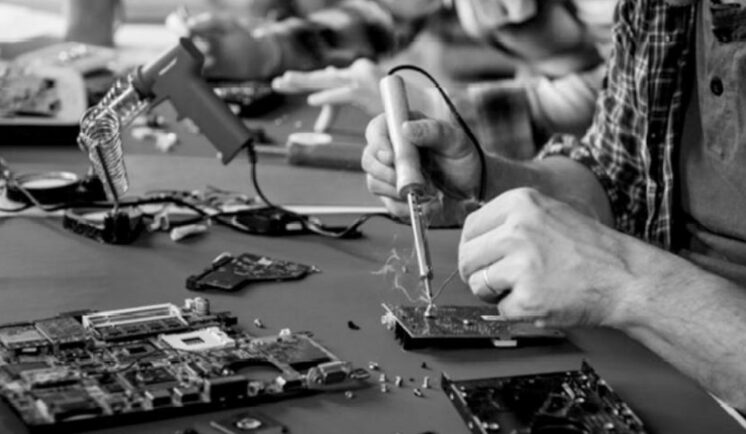
Labour precariousness in the electronics industry in Mexico
CEREAL’s report is meant to support workers and local organisations’ advocacy activities in the context of recent key legislative developments in Mexico, such as the labor law reform from 2019, which aims to guarantee freedom of association and consolidate an effective and transparent Labour Justice System, and the entry into force of a new trade agreement between Mexico, Canada and the US (T-MEC).
The T-MEC includes obligations for states to guarantee the protection of workers’ rights in areas such as forced labour, discrimination and collective rights. The new legal labour framework is an important juncture in the electronics industry that has brought about a favourable legal and political scenario to push for changes with regards to freedom of association and collective rights.
Workshops
GoodElectronics also supported six workshops in which CEREAL trained 41 electronics workers on occupational health and safety issues. The workshops were organized in Guadalajara and Mexicali and workers were provided with training materials on health and safety protection, toxic chemicals and occupational exposure limits.
Workers are now able to use their new skills in their own workplaces to demand protective equipment and more information about hazardous substances. Trainees came from more than 15 different manufacturing companies.

